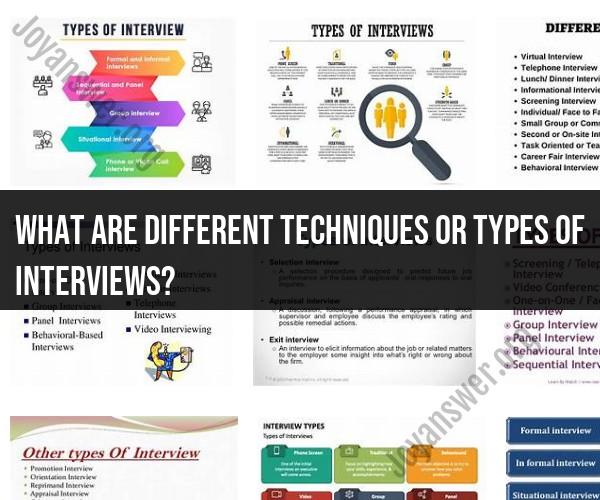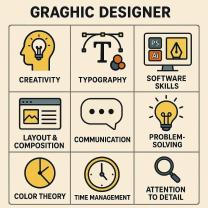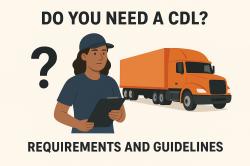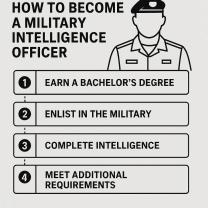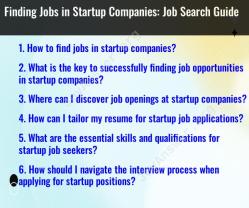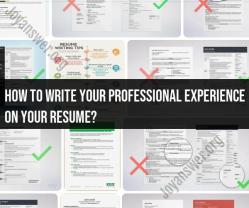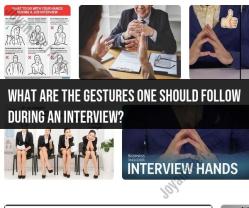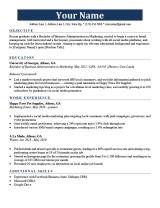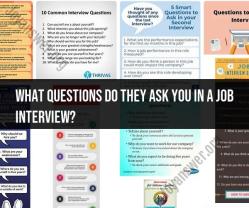What are different techniques or types of interviews?
Interviews come in various forms, each designed to assess different aspects of a candidate's qualifications, skills, and fit for a job. Here's a comprehensive overview of different interview techniques or types:
Structured Interviews:
- Technique: In structured interviews, interviewers use a predetermined set of questions and evaluate candidates' responses based on a standardized scoring system.
- Purpose: To ensure fairness and consistency in candidate assessment.
- Advantages: Reduces bias, allows for objective comparison, and is effective for roles where specific competencies are crucial.
Behavioral Interviews:
- Technique: Behavioral interviews focus on past behavior as an indicator of future performance. Candidates are asked to provide specific examples from their previous experiences.
- Purpose: To assess how candidates have handled situations in the past and predict their future actions.
- Advantages: Provides concrete evidence of skills and competencies, helps identify candidates with relevant experience.
Unstructured Interviews:
- Technique: Unstructured interviews are flexible and open-ended. Interviewers may ask a variety of questions that may not follow a set script.
- Purpose: To gauge a candidate's personality, communication skills, and cultural fit.
- Advantages: Allows for a more natural conversation and insights into a candidate's character and values.
Panel Interviews:
- Technique: Panel interviews involve multiple interviewers who assess a candidate simultaneously. Each panel member may focus on different aspects of the candidate's qualifications.
- Purpose: To gather diverse perspectives and opinions on the candidate.
- Advantages: Provides a well-rounded evaluation, saves time, and ensures consistency.
Group Interviews:
- Technique: Multiple candidates are interviewed together, often participating in group activities or discussions.
- Purpose: To assess how candidates interact, collaborate, and communicate in a group setting.
- Advantages: Evaluates teamwork skills and how candidates handle group dynamics.
Case Interviews:
- Technique: Case interviews present candidates with real or hypothetical problems or scenarios and ask them to analyze and provide solutions.
- Purpose: To assess problem-solving, analytical thinking, and decision-making skills.
- Advantages: Effective for roles that require critical thinking, such as consulting.
Technical Interviews:
- Technique: Technical interviews are common in technical roles. Candidates are asked technical questions or given coding challenges.
- Purpose: To evaluate a candidate's technical knowledge and problem-solving abilities.
- Advantages: Ensures candidates have the necessary technical skills for the job.
Phone Interviews:
- Technique: Phone interviews are typically used for initial screening. They involve a brief conversation to assess qualifications and interest.
- Purpose: To narrow down the candidate pool before in-person interviews.
- Advantages: Saves time and resources for both candidates and employers.
Video Interviews:
- Technique: Video interviews can be live (synchronous) or pre-recorded (asynchronous) and are conducted via video conferencing tools.
- Purpose: Used for remote job interviews, they assess a candidate's qualifications and communication skills.
- Advantages: Convenient for remote candidates and helps assess non-verbal communication.
Stress Interviews:
- Technique: Stress interviews aim to put candidates under pressure through challenging or confrontational questioning.
- Purpose: To assess a candidate's composure, adaptability, and ability to handle stress.
- Advantages: Reveals how candidates perform under pressure.
Situational Interviews:
- Technique: Candidates are presented with hypothetical situations related to the job and asked how they would handle them.
- Purpose: To assess problem-solving, decision-making, and situational judgment.
- Advantages: Helps predict how candidates might handle real workplace challenges.
Cultural Fit Interviews:
- Technique: Cultural fit interviews assess whether a candidate's values, personality, and work style align with the company's culture.
- Purpose: To ensure a candidate will thrive within the organization.
- Advantages: Ensures a harmonious work environment and strong team dynamics.
Portfolio-Based Interviews:
- Technique: Used in creative fields, candidates showcase their portfolio of work and discuss past projects.
- Purpose: To evaluate the quality and relevance of a candidate's work.
- Advantages: Provides tangible evidence of skills and abilities.
Assessment Centers:
- Technique: Assessment centers involve a combination of exercises, tests, role-plays, and simulations to evaluate various skills and competencies.
- Purpose: To comprehensively assess candidates in a controlled environment.
- Advantages: Effective for evaluating a wide range of skills and competencies.
Final Interviews:
- Technique: Final interviews often include senior executives or decision-makers and focus on cultural fit, alignment with company values, and long-term goals.
- Purpose: To make the final hiring decision.
- Advantages: Ensures alignment with company leadership and strategic vision.
The specific interview techniques used can vary based on the job, industry, and company's preferences. Candidates should be prepared for different types of interviews and tailor their responses accordingly.
Interview Techniques
There are many different interview techniques that interviewers can use to assess candidates. Some of the most common interview techniques include:
- Open-ended questions: Open-ended questions encourage candidates to provide detailed and thoughtful answers. Examples of open-ended questions include:
- Tell me about your experience with project management.
- What are your strengths and weaknesses?
- Where do you see yourself in five years?
- Closed-ended questions: Closed-ended questions can be used to gather specific information from candidates. Examples of closed-ended questions include:
- What is your salary expectation?
- Are you proficient in Microsoft Excel?
- How many years of experience do you have in customer service?
- Behavioral questions: Behavioral questions are designed to assess a candidate's past behavior and how it relates to the job they are interviewing for. Examples of behavioral questions include:
- Tell me about a time when you had to deal with a difficult customer.
- Describe a time when you had to work under pressure.
- Give me an example of a time when you went above and beyond your job duties.
Interview Types
There are many different types of interviews, but some of the most common types include:
- One-on-one interviews: One-on-one interviews are the most traditional type of interview. In a one-on-one interview, you will meet with a single interviewer. This type of interview is typically more formal and focused on your skills, experience, and qualifications.
- Panel interviews: In a panel interview, you will meet with a group of interviewers, typically representing different departments or levels of the company. This type of interview is designed to assess your ability to communicate and interact with a variety of people.
- Group interviews: In a group interview, you will interview with a group of other candidates. This type of interview is often used for entry-level positions or positions that require strong teamwork skills.
- Phone interviews: Phone interviews are typically used as a screening tool to narrow down the pool of candidates. This type of interview is typically shorter and less formal than an in-person interview.
- Video interviews: Video interviews are becoming increasingly common, especially for remote positions. This type of interview is similar to an in-person interview, but it is conducted over video conferencing software.
Tips for Success
No matter what type of interview you are facing, there are some general tips that can help you increase your chances of success:
- Be prepared. Do your research on the company and the position, and practice answering common interview questions.
- Dress professionally. This shows that you are taking the interview seriously and that you are respectful of the interviewer's time.
- Arrive on time. This shows that you are punctual and that you are organized.
- Be polite and respectful.
- Be honest and authentic in your answers.
- Ask thoughtful questions. This shows that you are genuinely interested in the position and that you have done your research.
- Follow up after the interview. Thank the interviewer for their time and reiterate your interest in the position.
By following these tips, you can increase your chances of success in any interview and land your dream job.
